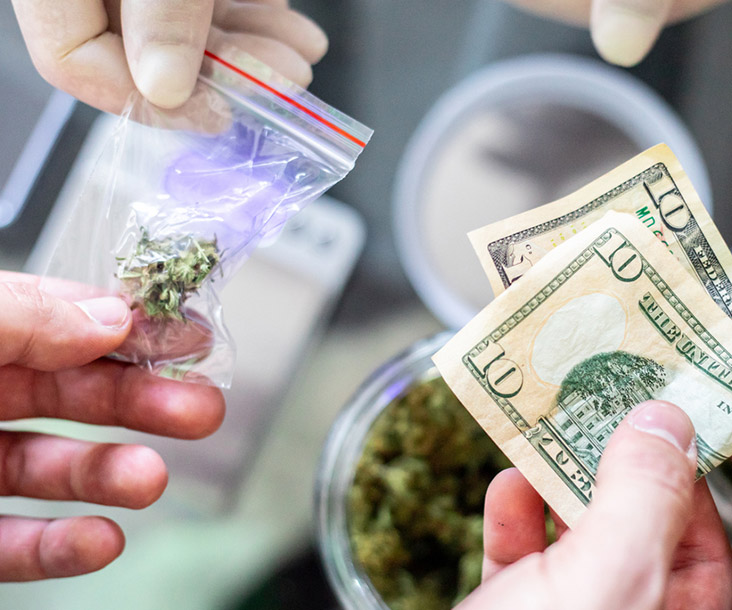A study published in the Journal of Psychoactive Drugs reports that many adult-use shoppers actually buy recreational weed to treat medical issues.
Dr. Marcus Bachhuber, a psychiatrist at New York’s Montefiore Medical Center, along with a team of researchers surveyed customers who shopped at two Colorado adult-use dispensaries in 2016 to discover exactly why pot shoppers were buying weed. Any respondents who were enrolled in the state’s medical marijuana program were excluded from the findings. Out of the remaining 1,000 respondents, 74 percent said that they were buying weed to help them sleep, and 65 percent said they were using cannabis products to help relieve pain.
“While adult-use laws are frequently called ‘recreational,’ implying that cannabis obtained through the adult-use system is only for pleasure or experience-seeking, our findings suggest that many customers use cannabis for symptom relief,” the researchers wrote. “Our findings suggest that de facto medical use may be highly prevalent among adult-use customers, and that access to an adult-use cannabis market may influence individuals’ use of other medications.”
The study reports that 83 percent of respondents who used cannabis to treat insomnia found it so effective that they were able to quit taking prescription sleeping pills. For those using recreational cannabis to treat pain, 82 percent stopped taking over-the-counter painkillers, and 88 percent were able to quit using opioid-based pain medications. These findings support many previous studies showing decreased rates of opioid use and abuse following the establishment of medical marijuana programs.
“Several prior studies similarly show that the use of cannabis by qualified patients is associated with the reduction, or even the elimination, of certain other prescription drugs — specifically opioids — over time,” NORML Deputy Director Paul Armentano told Marijuana Moment. “These findings speak not only to the therapeutic efficacy of cannabis as an alternative analgesic option, but also to its potential role as a harm reduction agent.”
“Approximately 20 percent of American adults suffer from chronic pain, and one in three adults do not get enough sleep,” Dr. Gwen Wurm, Assistant Professor of Clinical Pediatrics at the University of Miami Miller School of Medicine and co-author of the study, said in a statement. Prescription medications designed to treat these issues carry the risk of addiction and overdose, and even over-the-counter painkillers like ibuprofen or acetaminophen can cause serious kidney or liver damage.
While the new study confirms that many individuals suffering from pain or insomnia have been able to successfully use cannabis to safely treat their symptoms, the researchers caution that the medical community still has a lot to learn about pot.
“The challenge is that health providers are far behind in knowing which cannabis products work and which do not,” Dr. Wurm said. “Until there is more research into which cannabis products work for which symptoms, patients will do their own ‘trial and error’ experiments, getting advice from friends, social media and dispensary employees.”











